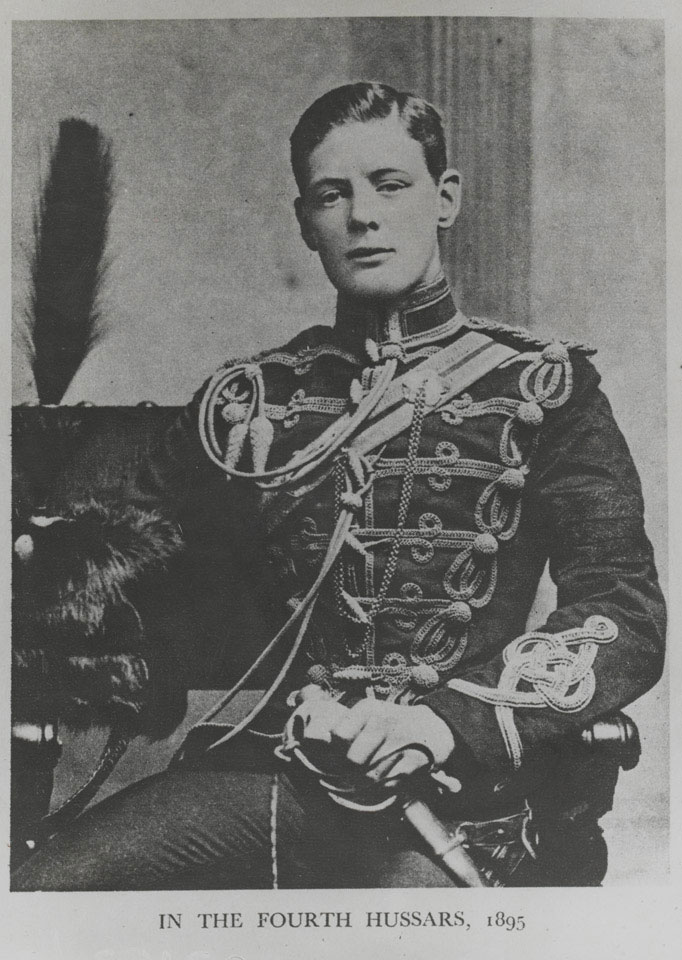In his first book, published in 1898, the solider, politician, historian and future British prime minister Winston Churchill wrote about The Malakand Field Force, a military unit that fought native tribes in the wild region along the Indian-Afghanistan border. As junior cavalry officer in the 4th Queen’s Own Hussars, Churchill was a first-hand observer of the campaign.
With words that ring down through the years, Churchill, very definitely a proper English gentleman, wrote: “The difficult language, and peculiar characteristics of the tribesmen are the study of a lifetime.” To operate in this place, Churchill suggested, required mastery of the local conditions, the role played by the tribal power brokers in every village and region, and “the general history and traditions of the country.”

“Men are needed who understand the whole question,” Churchill wrote, “and all the details of the quarrel, between the natives and the Government, and who can in some measure appreciate both points of view. I do not believe that such are to be found in an army.”
Re-read that last sentence as you think about sorting through the debris of 20-years of American military intervention in Afghanistan. Then consider the words of John Sopko, the special inspector general at the Pentagon, who just released what can only be termed a scathing report on the American misadventure.
Among the inspector general’s conclusions: Not only did the United States – both militarily and diplomatically – lack a coherent strategy in Afghanistan – another way of saying we didn’t know what we were trying to accomplish – but the entire $145 billion effort was crippled by the lack of “a detailed understanding of the country’s social, economic, and political dynamics … U.S. officials [were] consistently operating in the dark, often because of the difficulty of collecting the necessary information.”
Nearly the same words Sir Winston penned at the end of the 19th Century.
The recriminations and blame assigning are in full flower, a typical if wholly ineffective Washington, D.C. reaction to a military and diplomatic failure. American politicians are terrific at hyperbole and denial, not so good at solutions.
Idaho’s Jim Risch, the ranking Republican on the Senate Foreign Relations Committee, to cite just one example, helpfully noted this week: “We cannot treat [the Taliban] or its leaders as a legitimate government.” Risch went on to assign all the blame to the current occupant of the White House, who has lived there for eight months. “President Biden and his administration must answer for this disaster,” Risch said. “It didn’t have to be this way.”

But of course, Risch offered no real policy ideas. What would he do not to have it this way? When Risch chaired the Foreign Relations Committee for two years during the Trump Administration not once did he hold a public hearing on American policy in Afghanistan. He could have summoned any “expert” in the world to testify. He didn’t, and only one time did Risch succeed in getting the secretary of state before his committee, and that hearing was almost entirely devoted to the department’s budget and Mike Pompeo’s ethics, or lack thereof.
You’ll search in vain for any Risch concern about the Trump negotiated deal that released 5,000 Taliban fighters and effectively did recognize the Taliban as “a legitimate government.” In June, Risch was meeting in Washington with Afghan president Ashraf Ghani, who it is now reported fled the country with bags filled with millions of U.S. dollars.
Risch said at the time, “there are options in-between departing Afghanistan entirely or remaining there forever.” Risch did not – and still has not – spelled out what he meant by that. One suspects because what he said sounds better in theory than in practice.
To be sure, Risch is not alone in embracing the attitude of “don’t do anything, fail to suggest any workable approach, but keep you options open to complain.” It’s the modus operandi for official Washington. Risch is a good example, however, if only because he is so blatantly obvious about playing the game.
Let’s stipulate at least two things: Joe Biden is the responsible party. He made the call and set the timeline, but he also inherited a colossal mess that has bedeviled four presidents, two from each party.
Second, the Americans who fought, were injured and died in Afghanistan deserve our respect, admiration and thanks, even as we must hold to account those who sent them and commanded them; those who lived for 20 years in a la la land of self-delusion.
The Washington Post’s David Ignatius has consistently offered some of the most important insights into our Afghan debacle. “The hard truth is that this failure is shared by a generation of military commanders and policymakers,” Ignatius wrote this week, “who let occasional tactical successes in a counterterrorism mission become a proxy for a strategy that never was. And it was subtly abetted by journalists who were scratching our heads wondering if it would work, but let the senior officials continue their magical thinking.”
In his narrative of “magical thinking,” Ignatius quotes Admiral Mike Mullen, the former Joint Chief’s chairman, during one particularly rough patch in the long history of rough patches in Afghanistan. “We need to tell our story,” Mullen tells a group of military and diplomatic officials during a video conference, to which Ignatius remarks: “With all due respect to Mullen: The problem isn’t with the story. It’s with the reality.”
Here are two big realities in the wake for the chaotic U.S. departure from Kabul:
Americans who say they venerate our military must quit asking those soldiers to do impossible things in our names, while we largely ignore the reality of their sacrifice and steadfastly refuse to focus on serious issues. Truth be told many Americans couldn’t find Afghanistan on a map. We autopiloted this catastrophe, handing it over to a bunch of petty partisans like the junior senator from Idaho and then fell back on our tribal divisions.
Next week it we’ll be on to something else because, as Tom Nichols wrote in The Atlantic, we are unserious people governed by unserious politicians. By huge margins we originally embraced the effort in Afghanistan only to lose interest and then ignore things, at least until this week.
Unless we wise up, we’ll do it all again, and again.
“But before we move on, before we head back to the mall,” Nichols wrote, “before we resume posting memes, and before we return to bickering with each other about whether we should have to mask up at Starbucks, let us remember that this day came about for one reason, and one reason only. Because it is what we wanted.”
Next time you’re tempted to thank a veteran for his or her service, ask yourself whether you’ve exercised your responsibilities as well as they have.
—–0—–
Additional Reading:
Searching high and low on the World Wide Web to bring you a few good reads…
Blame the Army, Not Biden
Kevin Drum with a provocative take.
“For partisan reasons, Republicans will blame Biden. Even some Democrats and policy experts will do the same. But it just isn’t so. Nobody wants to say this out loud, but the real blame lies with the US military.”
Short and to the point. Read it all here.
The Civil Rights Leader Who Thinks America Is “In Many Ways Worse Off Than It Was Then”

Jonathan Alter talks to Andrew Young, a conversation from the Washington Monthly.
“People have every reason to be deeply concerned. This country is in many ways worse off than it was then. We don’t have a strategy for combating voter subversion. We have to depend on Congress or the Supreme Court and both are long shots now, though I haven’t given up on the Supreme Court.”
Andy Young on our present moment.
Bill Murray is Playing Golf in Ireland
I am a passionate follower of all things Irish – football, whiskey, politics. I love The Irish Times, which had this story this week about the actor Bill Murray swinging his way through the Olde Sod.
“The wires are alive with the news that Bill Murray is in Ireland to play golf. He will hack his way through courses such as Druids Glen, Rosapenna and Ballybunion for a YouTube series called The Links Life.”
Nanci Griffith
The folk and country music singer/songwriter died recently at age 68 – too, too young – and what a charming, talented artist.

I’ve been playing her songs over and over this week. Including one of the classics.
“Love at the Five and Dime.”
Rita was sixteen years
Hazel eyes and chestnut hair
She made the Woolworth counter shine
And Eddie was a sweet romancer
And a darn good dancer
And they waltzed the aisles of the five and dime
Here’s a video of Nanci singing that fabulous song.
Be well, friends. Write when you get work…all the best.
